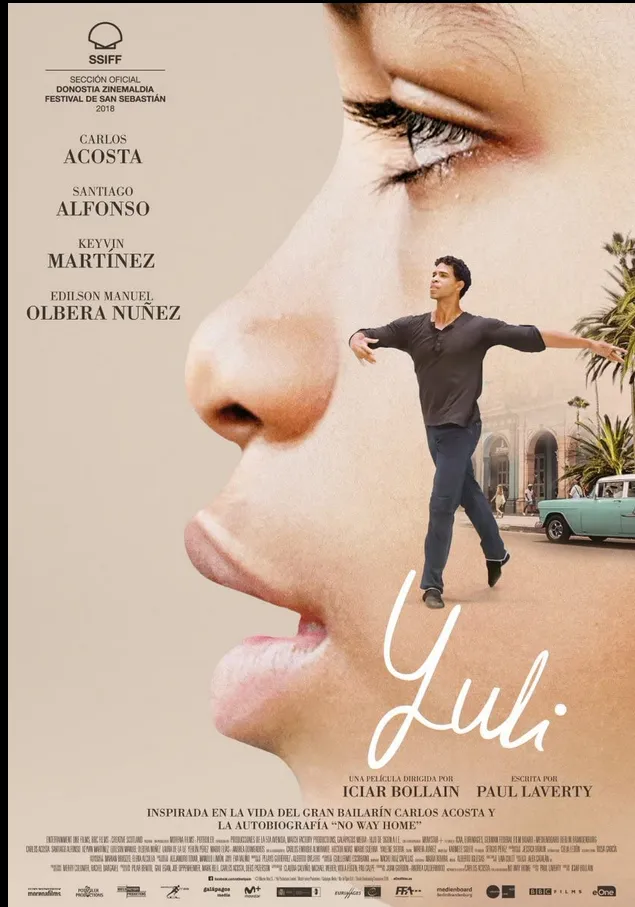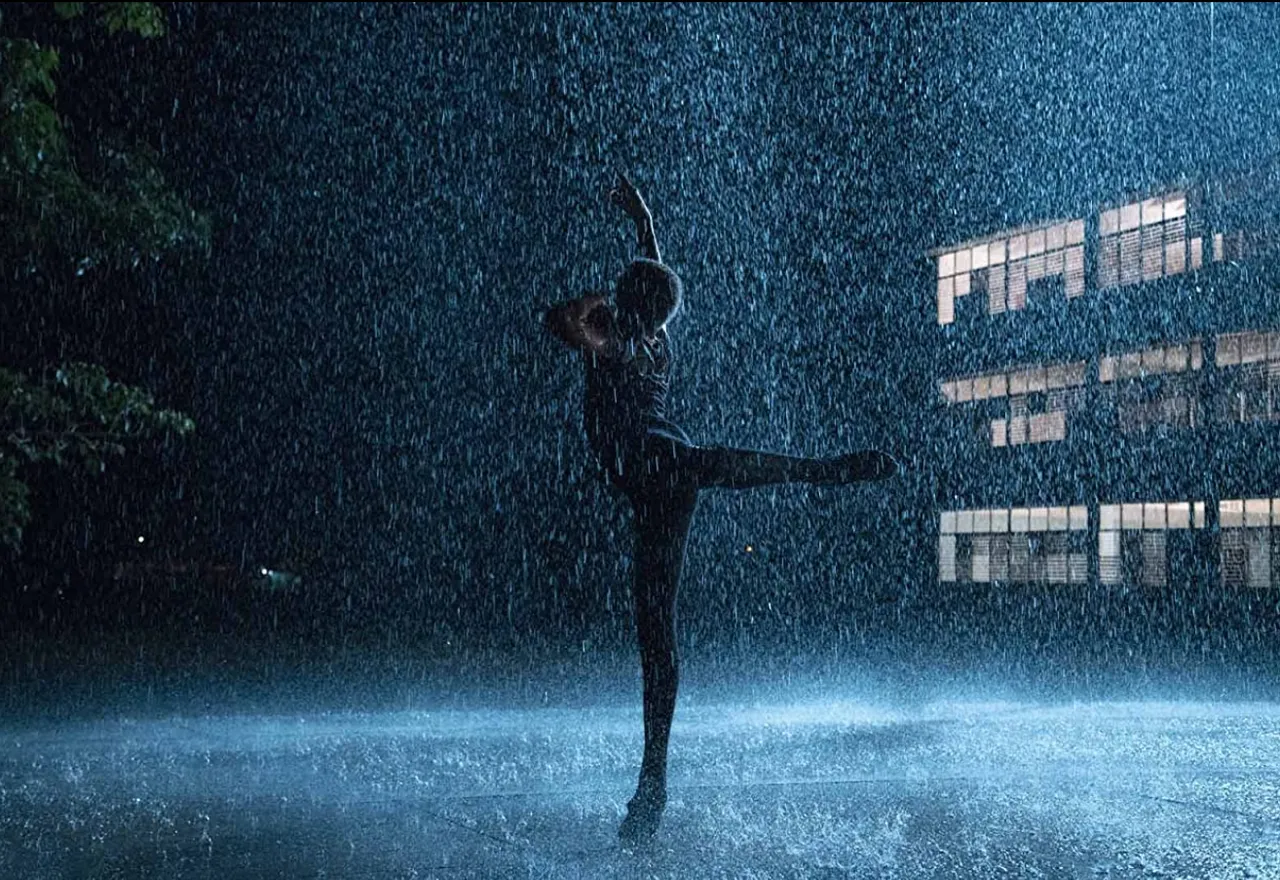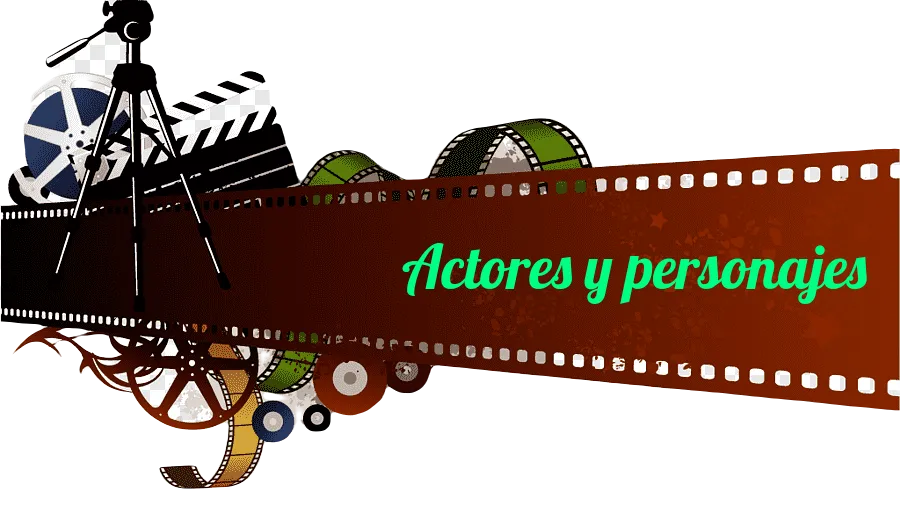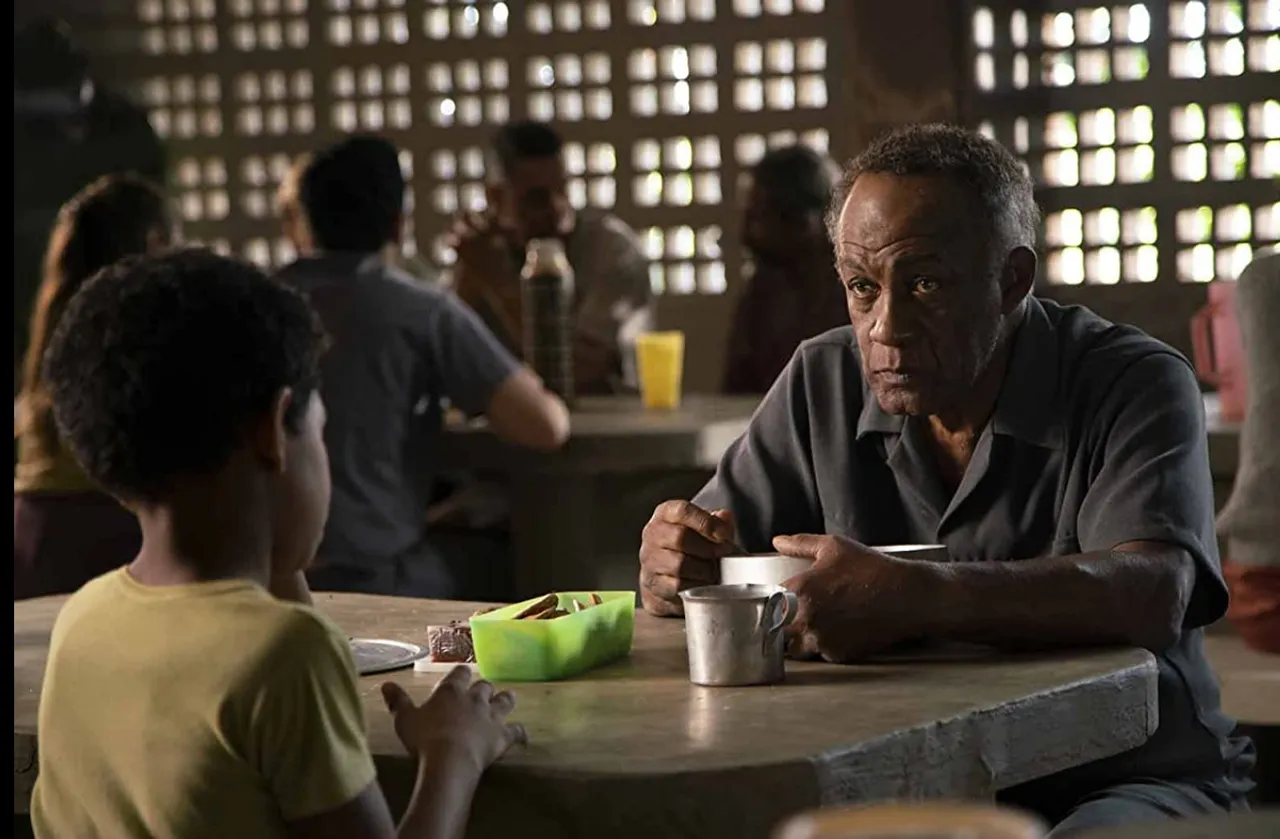
Hello #hivers friends of this cinephile community, where we find admirers and critics of the so-called seventh art.
I hope you all had a serene holiday season and have received the year 2022 in the same way, although it seems that in certain parts of the world the coronavirus is again beginning to make its way.
Let's not let our guard down, let's be vigilant and enjoy the holidays in peace and serenity with our loved ones!

Today I want to talk about a movie that I saw not too long ago and that caught my attention because of the austerity and sobriety with which it has been filmed.
It is Yuli Spanish film of 2018, directed by Icíar Bollaín that deals with the life of the famous Cuban dancer Carlos Acosta.
Perhaps Acosta's very origins may have been different from those of so many children.
To begin with, his father Pedro affectionately called him by the nickname Yuli because he considered him the son of Ogun, an African god, in Yoruba mythology, a fighter above all things.
Not only a fighter but a revolutionary dancer for the classical canons prevailing at the time that led him to occupy an enviable position: he was the first black director of the Royal Ballet in the world of contemporary dance.
In this context, his father, discovering his son's true potential for dance, forced him to attend the National School of Cuba, which for the young man was a real ordeal since he constantly refused to submit to the discipline and education that the school demanded.
Normally we are used to see this kind of films not devoid of a certain political charge, especially when they have dealt biographically with the stories of Russian dancers.
However, in this case Yuli deals with politics in a very marginal way, perhaps as little support from the government for his activity, but his is more a criticism of the lack of support for art than a criticism of the prevailing political regime. And rightly so. Perhaps the fact that it was a Spanish film directed by a woman contributed to this.
The truth is that the whole film concentrates on the art that has dominated Carlos Acosta's life, with very other points such as the relationship with his father, a society that does not look favorably on a male dancer and a social and family environment with which he has to struggle in continuation.
The fact that it was North American and European dance companies that offered her to take her first steps and then to consolidate herself on a worldwide level is a more than eloquent sign.
And in this inner context is the real struggle of Carlos Acosta: the conquest of the world, through dance, by a street hero.
In a constant struggle to control his exuberant character, Acota manages to move from the shady or silent alleys and shallows of Havana where he practiced breakdancing on the asphalt to the great and main stages of the dance world.
His greatest challenge was always to translate the explosive force of his physique into a delicate composure of extreme elegance, to be able to walk a path that would take him from chaos to absolute control, from anarchy to art.
And to walk his talent in dance corps of worldwide fame and prestige as the National Ballet of England, the National Ballet of Cuba, the Houston Ballet and the American Ballet Theatre.

Carlos Acosta: Carlos Acosta
Santiago Alfonso: Pedro Acosta
Keyvin Martínez: The young Carlos Acosta
Edlison Manuel Olbera Núñez: Carlos Acosta as a child.
Laura De la Uz: Professor Chery
Yerlín Pérez: María
Andrea Doimeadios: Berta


Hola amigos #hivers de esta comunidad cinéfila, donde encontramos admiradores y críticos del llamado séptimo arte.
Espero que todos hayan pasado unas serenas fiestas de fin de año y hayan recibido de la misma manera el 2022 aunque pareciera que en ciertas partes del mundo el coronavirus está de nuevo comenzando a hacer de las suyas.
No bajemos la guardia, estemos atentos y gocemos de las fiestas en paz y serenidad con nuestros seres queridos!

Hoy les quiero hablar y hacer particular énfasis de una película que vi no hace demasiado tiempo y que me llamó la atención por la austeridad y sobriedad con la cuál ha sido filmada.
Se trata de Yuli película española del año 2018, dirigida por Icíar Bollaín que trata la vida del famoso bailarín cubano Carlos Acosta.
Tal vez los mismos orígenes de Acosta hayan sido distintos a los de tantos niños.
Para comenzar su padre Pedro lo llamaba cariñosamente con el apodo de Yuli así porque lo consideraba hijo de Ogun, un dios africano, en la mitologia yoruba, un luchador por sobre todas las cosas.
No solo un luchador sino un bailarín revolucionario para los cánones clásicos imperantes en ese entonces que lo llevó a ocupar un sitial envidiable: fue el primer director negro del Royal Ballet en el mundo de la danza contemporánea.
En este contexto su padre descubriendo el verdadero potencial de su hijo por la danza lo obliga a asistir a la Escuela Nacional de Cuba, lo que para el joven era un verdadero suplicia ya que rehusaba constantemente a someterse a la disciplina y educación que le escuela exigía.
Normalmente estamos habituados a ver este tipo de películas no desprovistas de una cierta carga política, especialmente cuando han tratado biograficamente las historias de bailarines rusos.
Sin embargo en este caso Yuli trata la política en manera muy marginal, tal vez como poco apoyo por parte del gobierno hacia su actividad como la suya, pero lo suyo es más una crítica a la carencia de apoyo del arte que una críica al regimen político imperante. Y es justo que sea así. Tal vez el hecho que haya sido una película española dirigido por una mujer haya contribuído a ello.
Lo cierto es que toda la película se concentra en el arte que ha dominado toda la vida de Carlos Acosta, con puntos m uy altros como la relación con el padre, una sociedad que no ve con buenos ojos un bailarín masculino y un entorno social y familiar con el que tiene que luchar en continuación.
El hecho que hayan sido compañías de danza norteamericanas y europeas las que le ofrecieron hacer sus primeros pasos y luego consolidarse a nivel mundial es una señal más que elocuente.
Y en ese contexto interior está la verdadera lucha de Carlos Acosta: la conquista del mundo, a través de la danza, por un héroe de la calle.
En una lucha constante por controlar su exhuberante carécter Acota logra pasar de los callejones y bajos fondos de La Habana sombríos o silenciosos donde practicaba el breakdance sobre el asfalto a los grandes y principales escenarios del mundo de la danza.
Su mayor desafío fue siempre traducir la fuerza explosiva de su físico en una delicada compostura de extrema elegancia, para poder transitar de esta manera un camino que debía llevarlo del caos al control absoluto, de la anarquía al arte.
Y pasear su talento en cuerpos de danza de fama y prestigio mundial comoel Ballet Nacional de Inglaterra, el Ballet Nacional de Cuba, el Ballet de Houston y el American Ballet Theatre.

Carlos Acosta: Carlos Acosta
Santiago Alfonso: Pedro Acosta
Keyvin Martínez: El joven Carlos Acosta
Edlison Manuel Olbera Núñez: Carlos Acosta de niño
Laura De la Uz: Profesora Chery
Yerlín Pérez: María
Andrea Doimeadios: Berta


